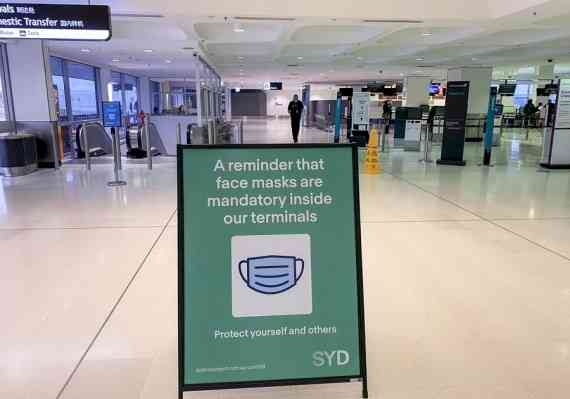Australians unsure about foreign travel despite easing of border curbs

Canberra, Nov 9 (IANS) A new survey revealed on Tuesday that despite easing of border restrictions, Australians were unsure of travelling overseas.
The survey conducted by the University of Queensland (UQ) showed that only 51 per cent of Australians plan to visit foreign destinations, reports Xinhua news agency.
About a third of those surveyed said they would prefer to travel domestically while 16 percent said they would not be travelling at all.
Associate Professor Gabby Walters from the UQ Business School said the "lukewarm" responses differed to a survey that had been conducted in April 2020, shortly after Australia banned international flights.
"I was surprised by the findings but, then again, I could understand the reasons for them," she told Xinhua.
"On the one hand, people may be champing at the bit to travel again, but there are still a lot of indecisions and quick policy changes, so there remains a fair deal of uncertainty.
"Previously, people felt uncertain and uneasy about the virus and this makes sense because in April last year, no one knew what was to come," Walters added.
The Associate Professor said this time people were reporting more feelings of "restriction and frustration" as well as being "slightly more scared and anxious" than the earlier survey.
The survey also found that New Zealand and Europe are the most popular destinations for international flyers, while Australia's coastal areas were the most favoured tourist spots for 44 per cent of domestic travellers.
"Queensland is still perceived as being the safest place to holiday, closely followed by Western Australia and Tasmania," Walters said.
"Queensland has low case numbers, great coastal locations and sunshine, while New South Wales and Victoria have been front and centre of negative Covid-19 publicity."
She said Australians were placing "more emphasis on vaccination status, Covid-19 numbers and hygiene standards when planning travel".
In a separate study, Walters and colleagues Associate Professor Sarah Kelly, Thomas Magor and Ann Wallin also investigated the behaviour and preferences of travellers considering cruise holidays.
International cruise ships have been banned from entering Australia since March 2020, following an outbreak on the liner Ruby Princess which led to more than 600 infections and 28 deaths.
"Travellers are seeking smaller ships and lower occupancy as well as better health and medical facilities on board," Walters said.
"We have also seen a market shift -- older generations are less likely to cruise now when previously they were a major market for cruise ships."


 IANS
IANS 








